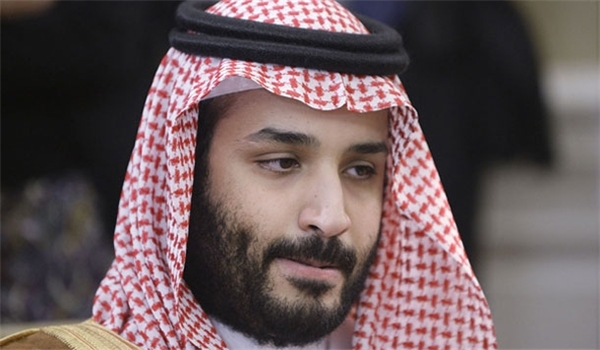
RNA - Patrick Cockburn wrote in an article for British online newspaper The Independent on Saturday that bin Salman has "embarked on ventures abroad that achieve the exact opposite of what he intended."
The young prince was appointed the first in line to the Saudi throne by his father, King Salman bin Abdulaziz Al Saud, in June, and since then, he has engaged in a string of radical economic and social projects in a bid to portray himself as “reformist", but those projects have been widely seen to be more about consolidating his personal power and less about bringing about real change to Saudi Arabia.
Prince Mohammed has been involved in an aggressive push to purge royals and businessmen critical of his policies under the banner of an “anti-corruption campaign.”
MBS "is the undoubted Middle East man of the year, but his great impact stems more from his failures than his successes," the article read.
"He is accused of being Machiavellian in clearing his way to the throne by the elimination of opponents inside and outside the royal family. But, when it comes to Saudi Arabia’s position in the world, his miscalculations remind one less of the cunning maneuvers of Machiavelli and more of the pratfalls of Inspector Clouseau," it added.
It said bin Salman's support for the militancy in Syria and the protracted war on Yemen has had adverse effects, leading to the victory of Syrian President Bashar al-Assad and bringing at least seven million Yemenis close to starvation.
Meanwhile, the Saudi crown prince's "aggressive opposition" to Iran has increased the Islamic Republic's influence and the kingdom's feud with Qatar has driven the Persian Gulf country further into the "Iranian embrace," it noted.
As for Lebanon, the kingdom's "ill-considered" pressure on Prime Minister Saad Hariri to resign was apparently meant to weaken the Hezbollah resistance movement and Iran in Lebanon, but has in practice empowered both of them, the article read.
"What all these Saudi actions have in common is that they are based on a naïve presumption that 'a best-case scenario' will inevitably be achieved. There is no 'Plan B' and not much of a 'Plan A': Saudi Arabia is simply plugging into conflicts and confrontations it has no idea how to bring to an end," according to the article.
"It is Saudi Arabia – and not its rivals – that is becoming isolated. The political balance of power in the region changed to its disadvantage over the last two years," it added.
The article further said MBS and his advisers may imagine US President Donald Trump and his son-in-law Jared Kushner are firmly by their side, but "Saudi Arabia is learning that support from the White House these days brings fewer advantages than in the past."
"The attention span of Donald Trump is notoriously short, and his preoccupation is with domestic US politics," it stressed.
It also touched on the new Saudi rulers' adventurist policies and the fact that "Saudi relations with other countries used to be cautious, conservative and aimed at preserving the status quo."
"But today its behavior is zany, unpredictable and often counterproductive," it said, adding "other states in the Middle East are coming to recognize that there are winners and losers, and have no wish to be on the losing side."
847/940